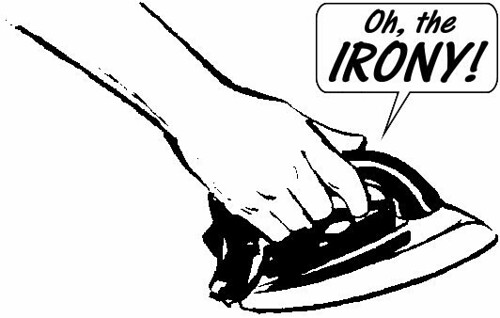
We’re always on the lookout for papers with that fillip of irony that lets us wonder if the Great Comedian in the Sky enjoys our little project. This week, we found two such articles.
One involves a 2008 paper in the Journal of Psycholinguistic Research titled “Examining Linguistic Relativity Hypothesis as One of the Main Views on the Relationship Between Language and Thought.” The author was Iman Tohidian, an Irani scholar. Except, in fact, the author was not Iman Tohidian, who appears to have what we might consider a rather appropriative view of the relationship between language and thought.
According to the retraction notice:
The Editor-in-Chief has retracted this article (Tohidian, 2009) because of significant textual overlap with a previously published book chapter (Lund, 2003). The author has not explicitly stated whether they agree with this retraction notice.
We also found this 2008 manuscript in California Linguistic Note by Tohidian which, through a bit of Googling, shows rampant verbatim plagiarism from a variety of sources. Take, for example, this piscatorial passage:
Consider this short sentence: I can fish.
This sentence could mean that I know how to fish, or that I habitually put fish in cans. In the first reading, can is a modal auxiliary verb,[,] but in the second sentence, can is the main verb. These two different meanings correspond to distinct syntactic structures.
It comes hook, line and sinker from the 2006 book, “An Introduction to Language and Linguistics.”
The second paper, “Outcome measurement in the treatment of spasmodic dysphonia: A systematic review of the literature,” appeared in 2019 in Journal of Voice, which the Voice Foundation publishes through Elsevier. The authors were a group from the University of Queensland, in Brisbane, led by Anna Rumbach.
Except, again, they weren’t really. Per the notice:
This article has been retracted at the request of the Editor-in-Chief and the authors. Sections of the text and ideas contained within the introduction and discussion of this article were taken without appropriate attribution from a doctoral thesis published by Sarah Wallace, PhD at https://espace.library.uq.edu.au/view/UQ:415571. The findings presented in this systematic review remain accurate as published.
Our request for comment to Rumbach returned with an automated message saying she is on leave until July and is not responding to emails until then. However, we received the following statement from the University of Queensland about the case:
UQ Pro-Vice-Chancellor (Research) Professor Mark Blows said that the lead author had worked actively with the University and the journal to have the article retracted once the matter emerged.
“The University takes plagiarism very seriously,” Professor Blows said.
“The researcher fully cooperated with the University and the journal in taking the necessary steps to have the article retracted as is appropriate, and has apologised to the author of the thesis, another UQ researcher who has now published all chapters of her work.”
Professor Blows said that the lead author of the retracted article had been reminded of the requirements of the Australian Code for the Responsible Conduct of Research and had undertaken additional training.
You might say the Journal of Voice had been the venue for someone stealing another’s voice.
Like Retraction Watch? You can make a tax-deductible contribution to support our work, follow us on Twitter, like us on Facebook, add us to your RSS reader, or subscribe to our daily digest. If you find a retraction that’s not in our database, you can let us know here. For comments or feedback, email us at [email protected].
How could you possibly have avoided writing “It comes hook, line and stinker from the 2006 book …. ?
*Professor Blows said that the lead author of the retracted article had been reminded of the requirements of the Australian Code for the Responsible Conduct of Research and had undertaken additional training.*
Yet another retraction related to Speech Pathology at The University of Queensland.
Five years ago, when Bruce Murdoch was convicted of research fraud, a UQ spokesman assured us that, “UQ has ongoing educational programs to inform researchers of the responsible conduct of research, and I am confident that our researchers take research integrity very seriously”.
http://retractionwatch.com/2016/03/31/neuroscientist-pleads-guilty-to-fraud-gets-two-year-suspended-sentence/